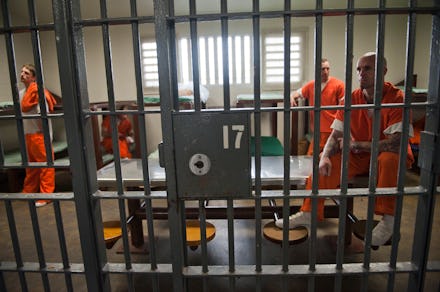How the War On Drugs is Killing Any Chance For Prison Reform

The backstory: Michael Pawlowski struggled with substance abuse for years and was convicted for a drunk driving offense several years ago. He was sent to drug treatment court and was gradually recovering until his relapse. According to his mother, Elaine, who wrote about her son in the Huffington Post earlier this year, Pawlowski hesitated to call 911 as he was dying from the relapse because he was afraid that violating his probation would send him to jail. Elaine writes, "My son could not overcome this dilemma and died as a result."
Pawlowski's catch-22 was one that should have been avoided. In fact, his death reveals a growing problem with the criminal justice system and its reforms. Ongoing reforms still rely on punishment as deterrence, often in the form of incarceration. Like a stiletto jabbing into our ballooning belief in many of our reform efforts, this problem points to our backwards thinking when we talk about criminal justice reform.
By now, the "war on drugs," is widely acknowledged as a failure and all levels of the government are reevaluating the stringent drug laws that President Richard Nixon started in the late 1960s. The strict sentencing and parole regimes that have predominantly incarcerated people of color are not positively viewed by many politicians in either political party. As newer, alternative ideas to mass incarceration have cropped up — think drug courts and community courts — they have been touted as answers to some of the blatant inefficiencies of the criminal justice system and have become inseparable from talks of prison reform.
(Source: National Institute of Justice)
But many of these alternative systems only deal with individuals who have committed non-violent crimes — usually involving parole violations or drug usage. The courts bring together judges, prosecutors, and treatment providers to determine the proper treatment or educational programs for individuals on a case-by-case basis, and also work together to make sure that the individual sticks with the programs. How do they often ensure this? By using the threat of jail time.
The problem: These programs demonstrate one fundamental hole in how people are thinking about dealing with prison reform: we aren't yet able to take incarceration out of the equation.
The basic framework for how we deal with crimes — however minor — still involves waving around the threat of incarceration. Melinda Silva, the president of the Parole Agents Association of California, said in an interview with California Health Report, "Jail isn't the best motivation, but it is something." She added, "If there is no sanction, then there is little motivation."
Although rewards such as reduced fees for treatment or gift certificates do exist, fear of incarceration is still used as the ultimate motivation. In fact, most programs include a possibility of time behind bars and the sanctions are often "graduated," where continuing transgressions involve fees or increased incarceration time.
Maintaining incarceration in our efforts to reform our prisons not only shows that our reformative ideas are limited, but also that using sanctions isn't beneficial to many justice-involved individuals. Studies have shown that incarceration sanctions have little effect on individuals who have previous experience being in prison. Moreover, within the myriad of success stories that the alternatives to incarceration have prompted, there remain stories like Pawlowski's, where a reliance on incarceration as the deterrence to future crimes only separated the justice-involved individuals from the support structures necessary for rehabilitation. In Pawlowski's case, he was too afraid to get the help he needed.
As federal and state-level policies attempt to address existing issues in the criminal justice system, many are working on developing programs that better meet the needs of individuals. Senators Rob Portman (R-Ohio) and Sheldon Whitehouse (D-R.I.) recently sponsored the Public Safety Act of 2013, which supports grants to develop a methodology to assess justice-involved individuals and to develop programs to meet their needs.
Still, many of the newer programs, particularly the ones involving substance abuse, continue to rely on incarceration sanctions. In fact, Sen. Portman's proposal includes a desire to implement more pilot programs like the Hope Program in Hawaii — which enacts "swift punishment" on those who fail to adhere to their drug treatment plan or violate parole. These immediate sanctions often include a "swift" stint in jail.
In the larger context of reevaluating the criminal justice system, a model that retains its same reliance on incarceration doesn't constitute a real reform.